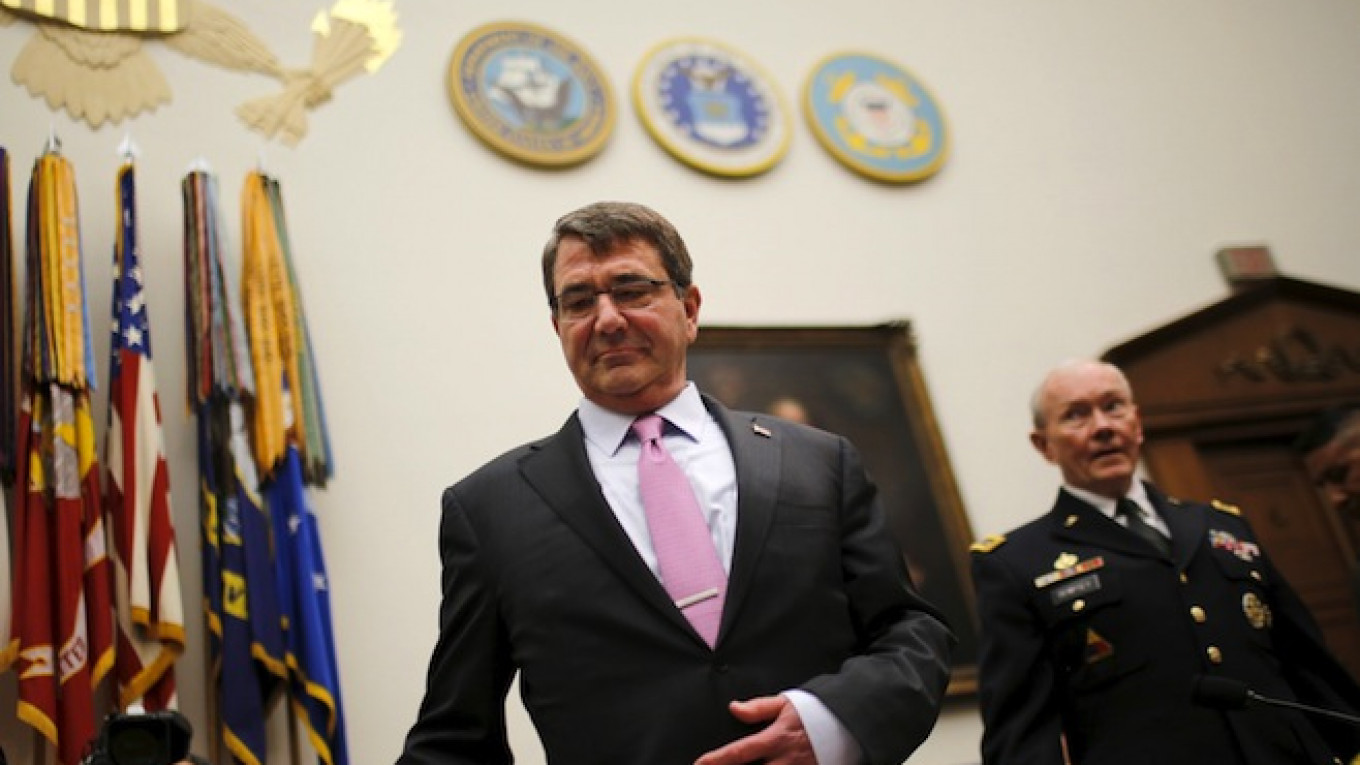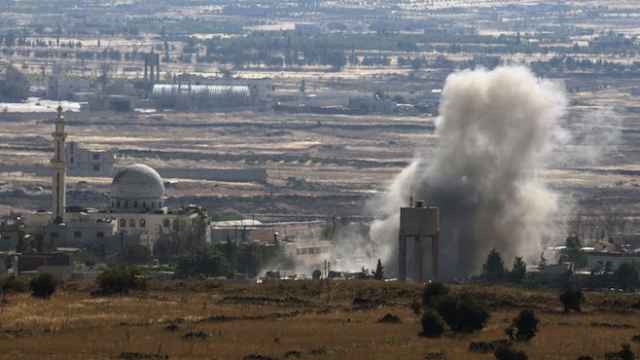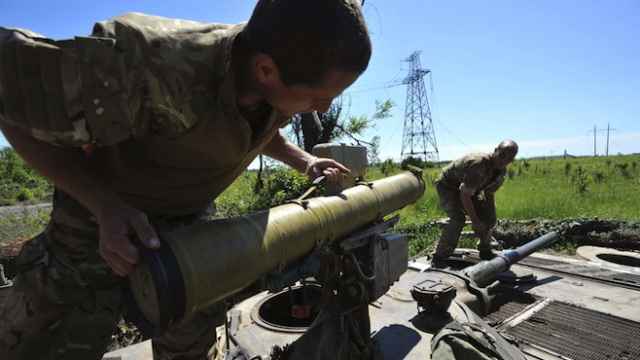BERLIN — The United States and its NATO allies are preparing militarily for the prospect that their rift with Russia could outlast President Vladimir Putin, U.S. Defense Secretary Ash Carter has said.
Russia's intervention in Ukraine has put NATO allies in eastern Europe on edge and triggered a series of military moves by the alliance, including an acceleration of exercises and the creation of a NATO rapid response force.
Carter, speaking at the start of a week-long trip to Europe, said the United States hoped Russia would return to a forward- looking course and noted areas of diplomatic cooperation with Moscow, including talks over Iran's nuclear program.
But ongoing changes to NATO's military posture, which are meant in part to deter a Russian intervention, illustrate preparations for longer lasting tensions, he said.
"The adaptations I was talking are specifically in anticipation that Russia might not change under Vladimir Putin, or even thereafter," Carter said before landing in Berlin.
Asked whether he thought Putin might change course, Carter said he hoped so, but "I can't be sure."
Putin was elected president in 2012 for six years. Under Russian law, the head of state is limited to two consecutive terms, so he could run again in 2018 for another six-year mandate.
Carter's trip will flag many of those adaptations by NATO, starting with getting a first-hand look at some of NATO's new rapid response forces in Germany on Monday. In Estonia, Carter will climb aboard a U.S. warship fresh from Baltic Sea drills.
Carter could also offer more details on plans to pre-position heavy military equipment, officials say.
All of the moves been decried by Moscow, which has threatened to beef up its own forces and to add more than 40 intercontinental ballistic missiles to its nuclear arsenal this year.
'Loose Rhetoric'
Carter blasted Putin's "loose rhetoric" about nuclear arms.
"There is no need for Vladimir Putin to make that point," he said. "I obviously can't explain to you why he would posture in that way but it's not appropriate behavior in my judgment."
The talk by Washington and Moscow may evoke memories of the Cold War. But a senior U.S. defense official told reporters traveling with Carter the United States would urge NATO allies to "dispose of the Cold War playbook."
U.S. officials say Ukraine has illustrated the importance of being able to counter "hybrid warfare," the blend of unidentified troops, propaganda and economic pressure that the West says Russia has used there. NATO's historic focus had been the conventional threats of the Cold War, which ended in 1991.
"Carter … will really push the alliance to think about new threats, new techniques, urge them to kind of dispose of the Cold War playbook and think about new ways to counter new threats," a senior U.S. defense official said.
Apart from Russia's annexation of Crimea, NATO officials say the rise of Islamic State and other militants in North Africa and the Middle East has also dramatically changed NATO's security environment.
NATO defense chiefs meeting on Wednesday and Thursday in Brussels are expected to discuss plans to create an alliance role in Iraq aimed at strengthening Iraq's institutions. A plan could be approved in July, the U.S. official said.
A Message from The Moscow Times:
Dear readers,
We are facing unprecedented challenges. Russia's Prosecutor General's Office has designated The Moscow Times as an "undesirable" organization, criminalizing our work and putting our staff at risk of prosecution. This follows our earlier unjust labeling as a "foreign agent."
These actions are direct attempts to silence independent journalism in Russia. The authorities claim our work "discredits the decisions of the Russian leadership." We see things differently: we strive to provide accurate, unbiased reporting on Russia.
We, the journalists of The Moscow Times, refuse to be silenced. But to continue our work, we need your help.
Your support, no matter how small, makes a world of difference. If you can, please support us monthly starting from just $2. It's quick to set up, and every contribution makes a significant impact.
By supporting The Moscow Times, you're defending open, independent journalism in the face of repression. Thank you for standing with us.
Remind me later.






